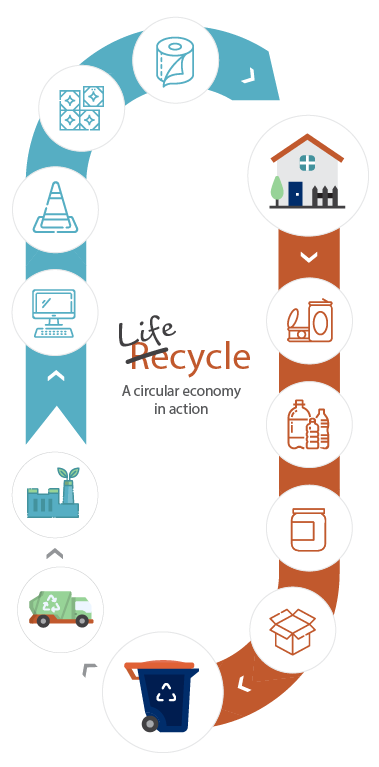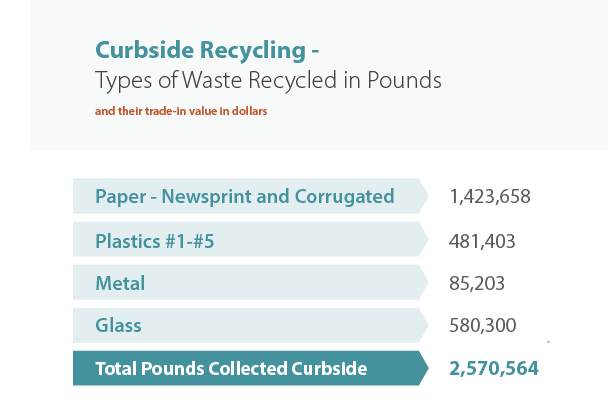Why Recycle
A circular economy serves to protect the environment & support economic growth.
Circular economies use resources to their fullest potential by repurposing materials instead of throwing them away. By reusing and/or remanufacturing, and then recycling products back to a raw material, we can extend the usable life of natural resources significantly. This cuts down on waste at all levels.
Economic Impact

Recycling Creates Jobs
The recycling industry creates local jobs within recycling processing centers and within recycling-based manufacturers.
Recycled Materials are Valuable
When we throw recyclable materials into the trash, we are throwing away money. A 2016 study by the West Michigan Sustainable Business Forum showed West Michigan could return $368 million to our local economy by capturing and exporting these materials.

$200,000
Equivalent
$25,000
Equivalent
$20,000
Equivalent
$14,000
Equivalent
$259,000
Equivalent
Environmental Impact
Recycling Reduces Energy Use
For common packaging products, it requires more energy to extract and process a natural resource into a new product than it does to recycle existing items back into raw materials. Reduced energy use means we can reduce the environmental impact of extracting fossil fuels from the Earth.
Recycling Reduces Pollution
By reducing energy consumption, we can further reduce greenhouse gas emissions and environmental impact from fossil fuel extraction. What’s more, when we value and care for recyclables as raw materials, we reduce the chances of them ending up on roadsides, waterways and oceans.
BENEFITS OF MOVING TOWARD A CIRCULAR ECONOMY

SAVINGS
- Reduced landfill contributions
- Reduced energy for extraction & processing of raw materials
- Reduced pollution
- Reduced cost of raw materials
GAINS
- New industry and job growth
- Retained value in economy
- Extended use for natural resources
- Increased security for raw material availability
recycling resources
How to Recycle
See how to recycle effectively and make a difference in our community.